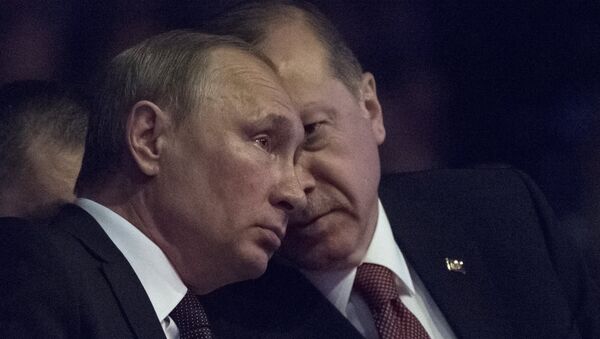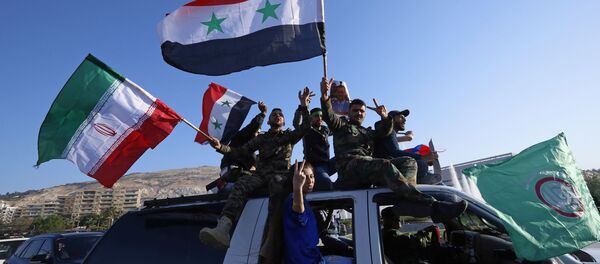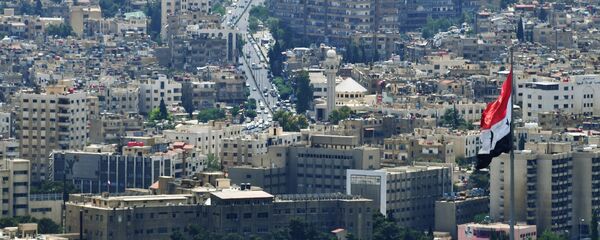The situation in the Syrian province of Idlib as well as in the Manbij region will also be on the meeting agenda.
Security Zones
According to Professor of International Relations at the Middle East Technical University in Ankara Huseyin Bagci, Putin and Erdogan are unlikely to reach any agreement on the security zone in northern Syria as the resolution of this issue depends on the United States.
"Tomorrow meeting will not reach any concrete solutions concerning security zone. It is America rather which will define, not Turkey and Russia. But Russia has to say something… Then, Russia is also unhappy for any military intervention and presence of Turkey in Northern Syria. Turkey's aim is to control the possible security zone but America will not give or 'share' the control of Northern Syria. It seems that it is American stake rather than Turkey's", Bagci told Sputnik.
READ MORE: Syrian Forces Trying to Run 'Psychological Operation' in Manbij — Erdogan
"Erdogan’s ‘safe havens’ and the ‘buffer zones’ suggested by the US are fundamentally different concepts. The first would effectively see Turkey moving its border southwards into Syria and – if Erdogan had his wish – be paid for doing so. The second would create a neutral area between Turkish and Syrian Kurdish forces", Jenkins said.
The expert expressed doubts that Putin would support Erdogan’s concept of the security zone as the Russian leader was persistently protecting the territorial integrity of Syria.
"I cannot see Moscow, which is committed to Syria’s territorial integrity and helping Damascus to reassert its control over the entire country, agreeing to allow Erdogan to occupy even more of Syria", the researcher said.
He added that Russia and Turkey could agree on the creation of the buffer zone between Turkey and the Kurdish forces, with Moscow persuading the Kurds to withdraw their troops from the border with Turkey in exchange for security guarantees for them.
Situation in Idlib
One more topic of the talks between Putin and Erdogan will be the situation in the Syrian province of Idlib, which remains the last stronghold of militant and terrorist groups.
"It seems that Turkey lost control over Al Nusra* and other terrorist groups in Idlib. Idlib is ‘garbage of radical groups’ and nobody ’cleans up’ or throw away this ‘garbage.’ Russia's concerns are understandable and Turkey is the responsible side as far as Turkey's policies concern … I do not expect any sooner solution of this situation unless the [Syrian] government forces with the support of Russia makes this ‘cleaning work’", Bagcı said.
READ MORE: Erdogan Ready to Visit Russia Soon, Putin Has No Immediate Plans to Meet
Jenkins also pointed out that there are differences on Idlib between Moscow and Ankara caused by Turkey’s inability to clear the region from the Nusra terrorists.
"I am sure that there are many people in Moscow who regard Turkey as having failed to fulfil the commitments given by Erdogan at Sochi. I cannot see Damascus and its allies being prepared to tolerate HTS* controlling the majority of Idlib for any long period of time. Turkey has demonstrated that it is unwilling or unable to commit the resources to defeat [them]… I think we are now going to see military operations against the HTS by Damascus and its allies. The only questions are when and what form the military operations will take – namely whether we shall see a campaign of attrition or an all-out assault", he said.
Control Over Syria's Manbij
"Russia seems to be in favour of delegating control over Kurdish forces – and the territories they control – to the Syrian government. Whether Turkey will support this is yet to be seen but if it does, it will be an important turning point in the Syrian civil war", Seda Demiralp, an associate professor of political science at the Isik University in Istanbul, told Sputnik.
According to Jenkins, the rest of the territories controlled by the Kurdish forces in northern Syria are likely to become controlled by the Syrian government troops.
"I think it is likely that, at some point, we shall see both Manbij and the rest of the SDF-held areas revert to nominal control by Damascus. What is not clear at the moment is how tight this control will be in practice", he noted.
READ MORE: Analysts Explain How Trump's Pull-Out From Syria Affects Turkey, Israel & Russia
Both Russia and Turkey along with Iran are guarantors of the Syrian ceasefire regime as well as mediators of the Astana reconciliation process.
*Al-Nusra Front or Jabhat al-Nusra, known as Jabhat Fatah al-Sham or Tahrir al-Sham is a terrorist group banned in Russia
The views expressed in this article are solely those of the speakers and do not necessarily reflect the official position of Sputnik.





